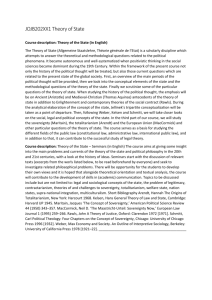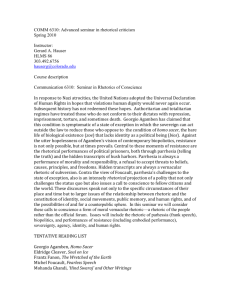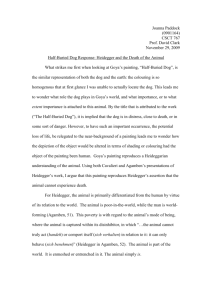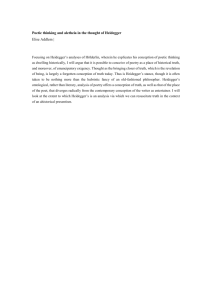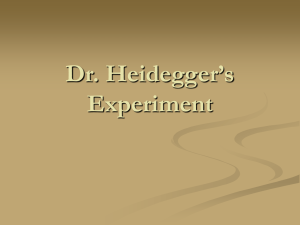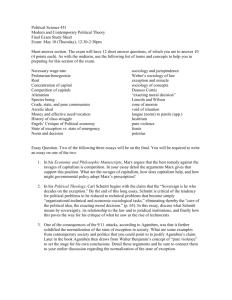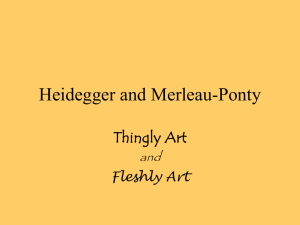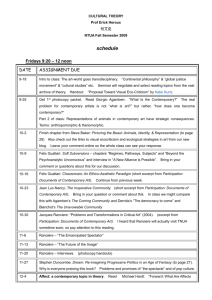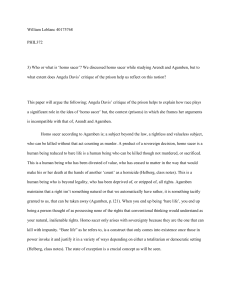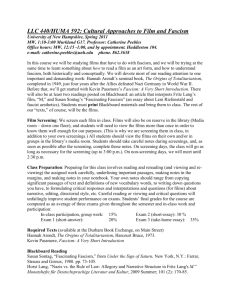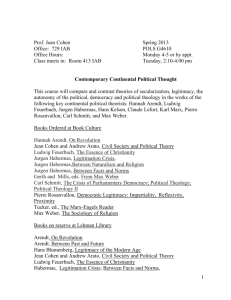PS 80 Contemporary Political Theory Syllabus
advertisement
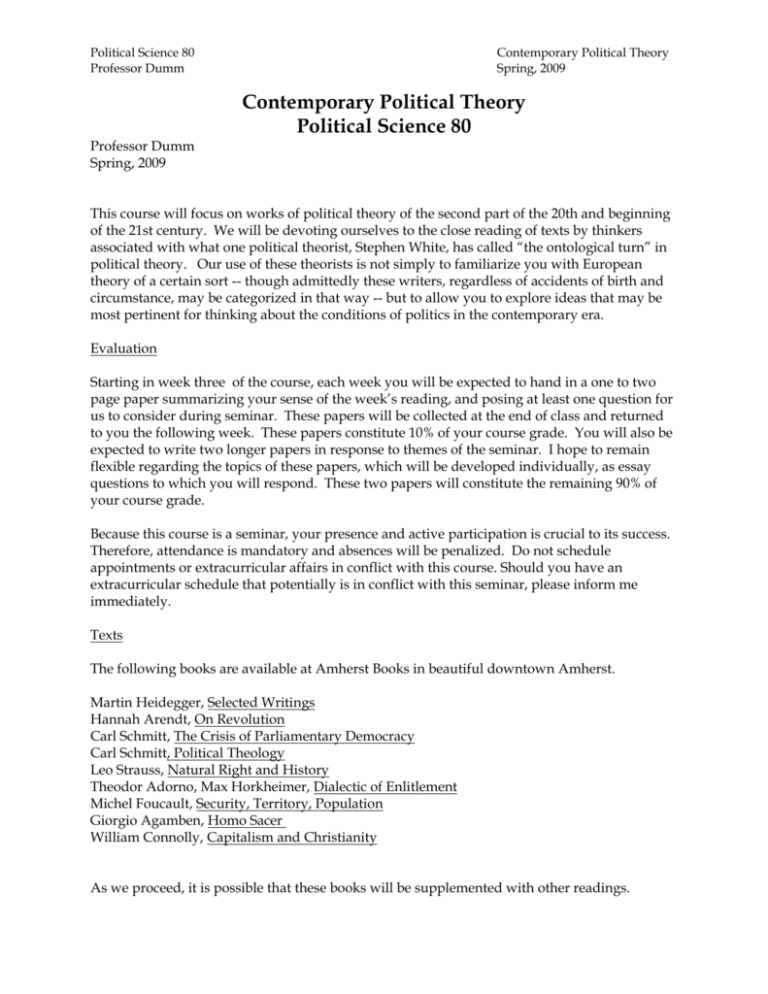
Political Science 80 Professor Dumm Contemporary Political Theory Spring, 2009 Contemporary Political Theory Political Science 80 Professor Dumm Spring, 2009 This course will focus on works of political theory of the second part of the 20th and beginning of the 21st century. We will be devoting ourselves to the close reading of texts by thinkers associated with what one political theorist, Stephen White, has called “the ontological turn” in political theory. Our use of these theorists is not simply to familiarize you with European theory of a certain sort -- though admittedly these writers, regardless of accidents of birth and circumstance, may be categorized in that way -- but to allow you to explore ideas that may be most pertinent for thinking about the conditions of politics in the contemporary era. Evaluation Starting in week three of the course, each week you will be expected to hand in a one to two page paper summarizing your sense of the week’s reading, and posing at least one question for us to consider during seminar. These papers will be collected at the end of class and returned to you the following week. These papers constitute 10% of your course grade. You will also be expected to write two longer papers in response to themes of the seminar. I hope to remain flexible regarding the topics of these papers, which will be developed individually, as essay questions to which you will respond. These two papers will constitute the remaining 90% of your course grade. Because this course is a seminar, your presence and active participation is crucial to its success. Therefore, attendance is mandatory and absences will be penalized. Do not schedule appointments or extracurricular affairs in conflict with this course. Should you have an extracurricular schedule that potentially is in conflict with this seminar, please inform me immediately. Texts The following books are available at Amherst Books in beautiful downtown Amherst. Martin Heidegger, Selected Writings Hannah Arendt, On Revolution Carl Schmitt, The Crisis of Parliamentary Democracy Carl Schmitt, Political Theology Leo Strauss, Natural Right and History Theodor Adorno, Max Horkheimer, Dialectic of Enlitlement Michel Foucault, Security, Territory, Population Giorgio Agamben, Homo Sacer William Connolly, Capitalism and Christianity As we proceed, it is possible that these books will be supplemented with other readings. Political Science 80 Professor Dumm Contemporary Political Theory Spring, 2009 Calendar January 26: Introduction: Truth and Politics Reading: Martin Heidegger, “On the Essence of Truth” I. The Politics of Existence February 2: Aesthetics and Truth Reading: Heidegger, ”The Origin of the Work of Art” February 9: Earthliness Reading: Heidegger, “The Question Concerning Technology” and “Building, Dwelling, Thinking” February 16: The Rise of the Social Reading: Arendt, On Revolution, Introduction, 1-3 February 23: Two Kinds of Revolution, Public and Private Reading: Arendt, On Revolution, 4-6 II. Representation March 2: The Problem of Sovereignty, I Reading: Carl Schmitt, The Crisis of Parliamentary Democracy March 9: The Problem of Sovereignty Reading: Schmitt, Political Theology SPRING BREAK March 23: Modernity and Authority Reading: Leo Strauss, Natural Right and History March 30: The Problem of Enlightenment Reading: Adorno and Horkheimer, Dialectic of Enlightenment III. Society April 6: Biopower, Part I Reading: Foucault, Security, Territory, Population lectures 1 through 6 April 13: Biopower, Part II Reading: Foucault, Security, Territory, Population, lectures 7 through 11 Political Science 80 Professor Dumm April 20: The Persistence of Sovereignty, I Reading: Agamben, Homo Sacer, Parts One and Two April 27: The Persistence of Sovereignty, II Reading: Agamben, Homo Sacer, Part Three IV. Our Condition May 4: Reading: William Connolly, Capitalism and Christianity Contemporary Political Theory Spring, 2009
